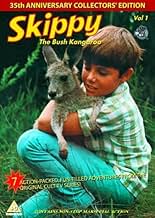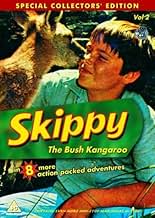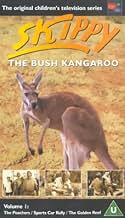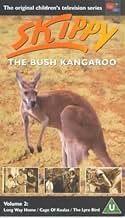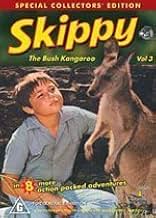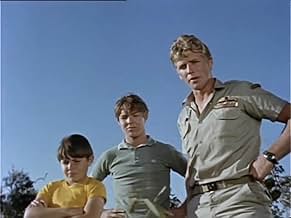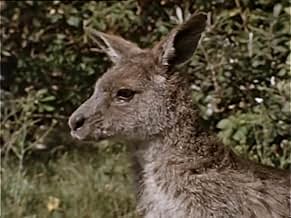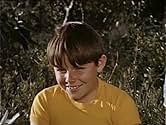As a kid growing up in West Australia in the late 60s this was one of the few TV shows I watched that was Australian. For the most part Aussie kids grew up watching American and British TV series and thinking that dolphins could talk, doctors could time-travel and birds flew south for the winter. All that changed when Skippy hopped into our lives and gave us Australian stories, Australian settings, Australian accents and Australian heroes. I had a Skippy cup, Skippy plate and insisted my Skippy Peanut Butter sandwiches and milk were served with them. We loved Skippy and were very proud when we discovered that the rest of the world loved Skippy too. The show was dubbed into 25 languages and was shown in 128 countries, something we Aussies didn't think possible for an Aussie TV show. We had thought that to be successful meant selling our TV shows to the American and British networks where our accent was believed to be a liability. At that time if an Aussie film or TV show made it to American audiences it was usually dubbed with American accented voices (Mad Max) or perceived as a British product. What Skippy demonstrated was that an Australian series could be successful beyond the American and British markets. Consequently Australian TV producers gained the confidence to produce more Aussie TV series knowing that they could sell them successfully to parts of the world where our strange accent wasn't an issue. Today the Aussie TV industry exports significantly more than it imports., particularly in children's programming. While Skippy is showing its age today, it's high production values, imaginative scripts and cultural integrity made it a quality product for its time. While it will always be a sentimental childhood favourite for most Aussies, it should also be remembered for its role as a catalyst for the establishment of a viable Australian TV & Film industry. It seems today that an Aussie accent is an asset in Hollywood and a talking kangaroo had more than a little to do with it.


